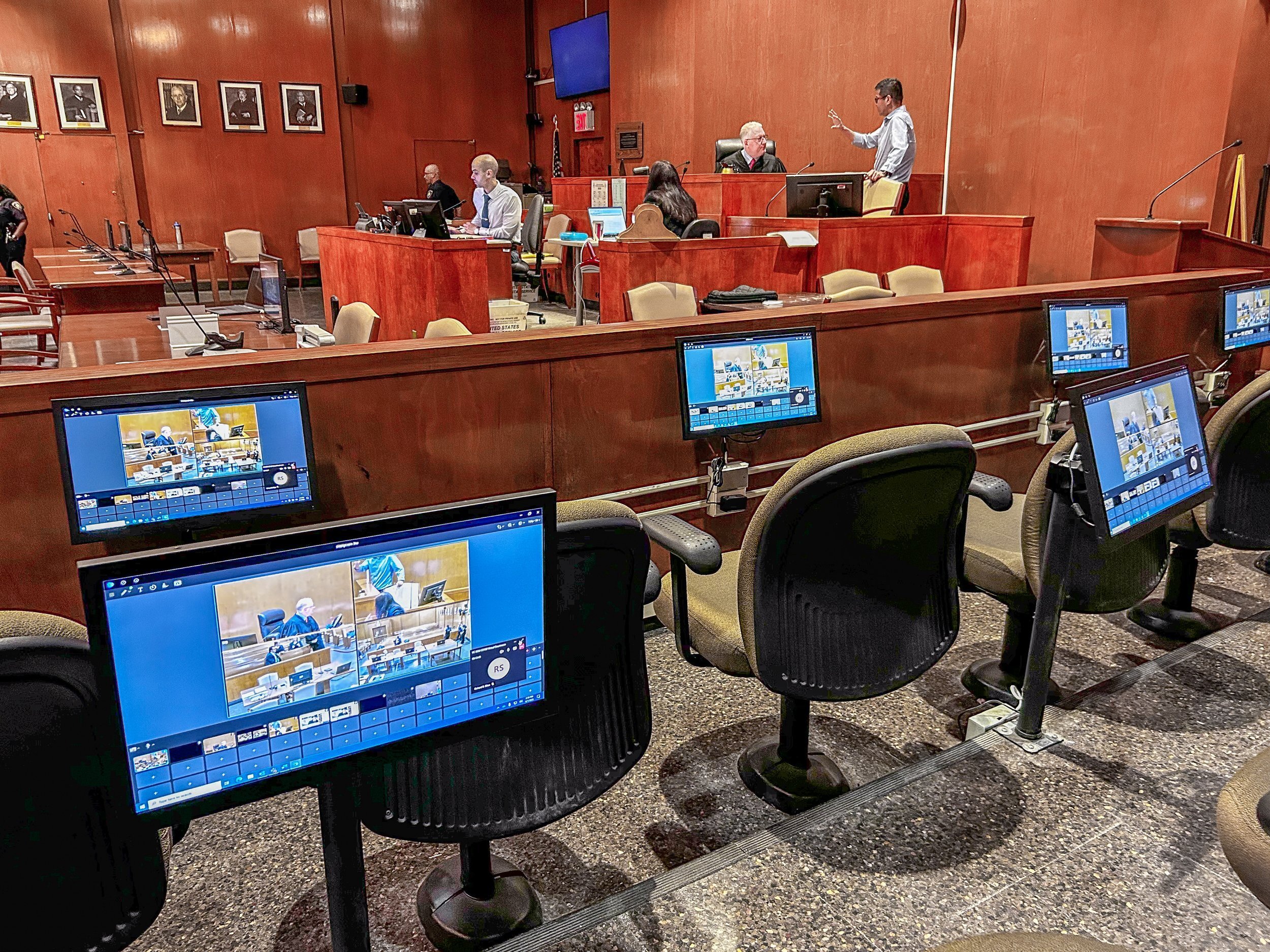Courts make ‘significant progress’ toward modernization, report says
/The Court Modernization Action Committee released its inaugural report last week and found that “significant progress” has been made in implementing the recommendations made last year by the Pandemic Practices Working Group.File photo by David Handschuh
By Jacob Kaye
The state’s court system has “made significant progress” in the past year modernizing its relatively archaic courthouses, according to the inaugural report from the Court Modernization Action Committee.
The committee, which was created in response to the findings of the court system’s Pandemic Practices Working Group of the Commission to Reimagine the Future of New York’s Courts, issued its first-ever report last week and found that strides have been made to make the Empire State’s courts more efficient and technologically adept.
In the past year, the court system has created guidelines regarding what types of proceedings should be held remotely, expanded e-filing and established a statewide Division of Court Modernization.
But despite the gains, the committee said much is left to do.
“While there has been impressive progress since the issuance of the [Pandemic Practices Working Group] report, much remains to be completed,” the committee’s report reads.
The Court Modernization Action Committee, which includes members of the court system, the bar, court users and nonprofits focused on court matters, was created to implement the 14 recommendations made by the Pandemic Practices Working Group to modernize the court. The PPWG crafted its recommendations after holding several public hearings across the state following the height of the pandemic. The hearings included testimony about which changes to the courts made during the pandemic should be kept, which should be scrapped and which should be reformed.
Increasing and improving the use of technology within the court system was at the center of the working group’s recommendations.
The group recommended bringing greater transparency and consistency to the use of virtual proceedings, improving the functionality of remote proceedings, expanding alternatives for court users to access virtual proceedings, improving accessibility to virtual proceedings for those who require special accommodations and improving the court system’s website.
The working group also recommended increasing public access to virtual proceedings, expanding the use of electronic filing, investing in projects that improve internet accessibility in areas that may lack it, improving training and tech support for judges, court staff and users, developing a plan for responding to future major court disruptions and putting aside funds to support court modernization and emergency preparedness.
A little less than a year after its creation, the Court Modernization Action Committee says that though no single recommendation from the PPWG has been fully realized, progress has been made in implementing all 14.
The working group’s top recommendation was that the court system take “steps that encourage judges and court administration to expand the usage of virtual proceedings for suitable case types and activities.”
To date, the committee says default guidelines for the use of remote proceedings have been distributed to judges and court staff; laptops have been given to most court reporters, many of whom were facing technical impediments to their participation in virtual proceedings; and a pilot project to study the use of virtual voir dire in four Supreme Courts has been completed.
The committee said that yet to be completed is a potential rule change or legislation related to virtual proceedings.
The committee also said that the court system has made strides in making virtual proceedings function better.
The court system has begun an investigation of alternative software that offers users better interfaces, improved usability, simultaneous interpretation and waiting and breakout rooms.
Still left to do is procure the new software, determine an implementation plan and “continue to address court reporter challenges with virtual and hybrid appearances,” the report said.
In addition to assessing the court system’s progress toward meeting the recommendations made by the working group, the committee also listed around a half dozen efforts the courts should prioritize in 2024.
They include supporting the consistent use of virtual proceedings; increasing the accessibility of virtual proceedings; expanding and standardizing electronic filing availability; upgrading court technology, including for virtual proceedings, modernized courtrooms, and a new website; and promoting availability of training and support for court users and staff.
A new member
In addition to issuing its inaugural report, the committee welcomed a new co-chair last week.
Judge Patria Frias-Colón, who currently serves as a Supreme Court justice in Brooklyn.
Frias-Colón previously spent around a year serving as the supervising judge for the New York City Civil Court in Queens in 2022.
She was first elected to the Civil Court bench in 2017 and has served in three of the city’s five boroughs.
Prior to her election, Frias-Colón served as a borough chief in the New York City Law Department’s Family Court Division and as an assistant deputy counsel to the chancellor for the New York City Department of Education.
As co-chair, Frias-Colón joins Chair Craig Doran, a Supreme Court justices in Ontario County, and co-chairs Scott Reents and William Silverman, attorneys with Cravath, Swaine & Moore LLP and Proskauer Rose LLP respectively, in leading the committee.
“Justice Frias-Colón’s energetic leadership and broad-based experience will be an asset to this diverse, distinguished panel, which has already made significant headway in its study and guidance of the court system’s modernization efforts, as documented in the committee’s inaugural report,” said Chief Judge Wilson.
Frias-Colón said she was “so grateful to be a part of this amazing and dedicated team.”
“Critical to our system of justice is ensuring equal and equitable access,” she added. “With the uncompromising support of our current leadership, our work continues to make a difference.”
Frias-Colón was a member of the committee prior to her ascension to co-chair.




